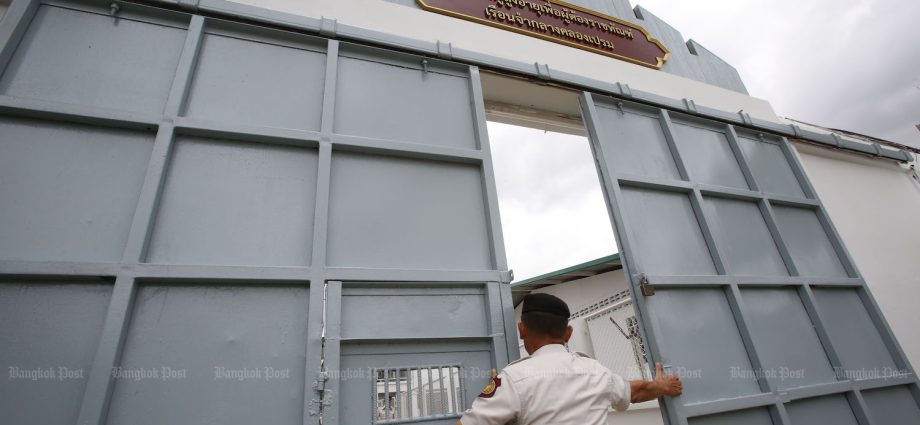Department says rule allowing some sentences to be served outside prison has very limited application

The Department of Corrections has clarified that a new regulation it issued is not intended to pave the way for former prime minister Thaksin Shinawatra to serve his sentence outside of a prison if he returns to Thailand.
Deputy Prime Minister Wissanu Krea-ngam, the government’s legal expert, also said on Thursday that the regulation does not empower the director-general of the Department of Corrections to move any convicts out of prisons to be detained elsewhere as rumoured.
Thaksin, who has lived in self-imposed exile in Dubai since 2008, has said repeatedly that he is determined to return to Thailand, possibly as soon as next month, and enter the legal process. He has been sentenced in absentia to a total of 12 years in jail in four corruption cases by the Supreme Court’s Criminal Division for Holders of Political Positions.
The new regulation published in the Royal Gazette outlines procedures for certain prisoners who have served their time and are about to be released. It would allow for them to be further detained if the courts consider they are likely to repeat the crimes, said Sithi Sutheewong, the deputy director-general of the Department of Corrections.
The regulation was issued under Section 5 of the Detention Procedures Code, which is based on Sections 40, 41 and 42 of the Criminal Code.
Mr Sitthi said the regulation might have caused some people to misunderstand that it was specially designed to empower the director-general of the department to allow some prisoners to serve their time elsewhere.
He called for the public not to believe in rumours and distorted information and to get correct information from the Department of Corrections’ public relations page.
He said the department now has 57 people — 51 men and six women — being detained to whom the rule might apply. They are mostly homeless people with a history of having repeatedly committed petty theft.
According to official figures from the DoC from December 2022, a total of 261,919 people were imprisoned in its facilities. The actual capacity of the system is 232,165, according to the International Federation for Human Rights.

